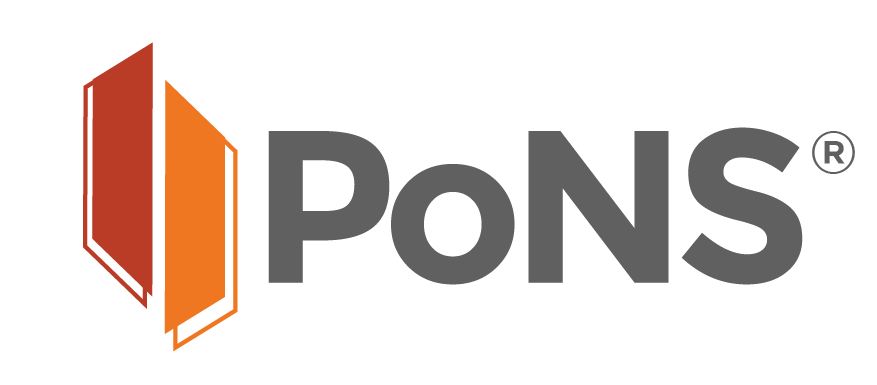NEWTOWN, Pa., May 12, 2020 (GLOBE NEWSWIRE) – Helius Medical Technologies, Inc. (NASDAQ:HSDT) (TSX:HSM) (“Helius” or the “Company”), a neurotech company focused on neurological wellness, today announced that it has received Breakthrough Designation for its PoNS™ device as a potential treatment for gait deficit due to symptoms of Multiple Sclerosis (“MS”), to be used as an adjunct to a supervised therapeutic exercise program.
“We are extremely pleased to receive this designation for our PoNS device,” said Philippe Deschamps, the Company’s CEO. “We look forward to working with FDA to process our application, with the ultimate goal of bringing our innovative technology to the aid of patients suffering with gait deficit due to MS-related symptoms, by providing them with a non-drug, non-implantable treatment that has the potential to significantly improve their ability to walk.”
The Breakthrough Devices Program is a voluntary program for certain medical devices and device-led combination products that provide for more effective treatment or diagnosis of life-threatening or irreversibly debilitating diseases or conditions.
The goal of the Breakthrough Devices Program is to provide patients and health care providers with timely access to these medical devices by speeding up their development, assessment, and review, while preserving the statutory standards for premarket approval, 510(k) clearance, and De Novo marketing authorization, consistent with FDA’s mission to protect and promote public health.
The Breakthrough Devices Program replaces the Expedited Access Pathway and Priority Review for medical devices. The FDA considers devices granted designation under the Expedited Access Pathway to be part of the Breakthrough Devices Program.
The Breakthrough Devices Program offers manufacturers an opportunity to interact with the FDA’s experts through several different program options to efficiently address topics as they arise during the premarket review phase, which can help manufacturers receive feedback from the FDA and identify areas of agreement in a timely way. Manufacturers can also expect prioritized review of their submission.
It is important to note that Breakthrough Device Designation does not change the requirements for approval of an application for a marketing authorization under section 510(k) of the Food, Drug, and Cosmetic Act.
About Helius Medical Technologies, Inc.
Helius Medical Technologies is a neurotech company focused on neurological wellness. The Company’s purpose is to develop, license and acquire unique and non-invasive platform technologies that amplify the brain’s ability to heal itself. The Company’s first product in development is the Portable Neuromodulation Stimulator (PoNS™). For more information, visit www.heliusmedical.com.
About the PoNS Device and PoNS Treatment
The Portable Neuromodulation Stimulator (PoNS) is an authorized class II, non-implantable medical device authorized for sale in Canada. PoNS is intended as a short term treatment (14 weeks) of gait deficit due to mild and moderate symptoms from MS and is to be used in conjunction with physical therapy and indicated as a short term treatment (14 weeks) chronic balance deficit due to mild-to-moderate traumatic brain injury and is to be used in conjunction with physical therapy. The PoNS is an investigational medical device in the United States, the European Union, and Australia, and is currently under review for clearance by the AUS Therapeutic Goods Administration. PoNS Treatment is currently not commercially available in the United States, the European Union or Australia.
Cautionary Disclaimer Statement:
Certain statements in this news release are not based on historical facts and constitute forward-looking statements or forward-looking information within the meaning of the U.S. Private Securities Litigation Reform Act of 1995 and Canadian securities laws. All statements other than statements of historical fact included in this news release are forward-looking statements that involve risks and uncertainties. Forward-looking statements are often identified by terms such as “believe,” “continue,” “look forward,” “will” and similar expressions. Such forward-looking statements include, among others, statements regarding the Company’s future clinical and regulatory development plans for the PoNS, the success of the Company’s planned study, business and commercialization initiatives and objectives, the potential receipt of regulatory clearance of the PoNS device in the United States, the European Union and Australia and the Company’s revenue guidance.
There can be no assurance that such statements will prove to be accurate and actual results and future events could differ materially from those expressed or implied by such statements. Important factors that could cause actual results to differ materially from the Company’s expectations include the uncertainties associated with clinical trial enrollments and the results of clinical trials, uncertainties associated with the clinical development process and FDA regulatory submission and approval process, including the Company’s capital requirements to achieve its business objectives and other risks detailed from time to time in the filings made by the Company with securities regulators, and including the risks and uncertainties about the Company’s business described in the “Risk Factors” sections of the Company’s Annual Report on Form 10-K for the year ended December 31, 2019, and Form 10-Q for the quarter ended March 31, 2020 filed on May 11, 2020 and its other filings with the United States Securities and Exchange Commission and the Canadian securities regulators, which can be obtained from either at www.sec.gov or www.sedar.com.
The reader is cautioned not to place undue reliance on any forward-looking statement. The forward-looking statements contained in this news release are made as of the date of this news release and the Company assumes no obligation to update any forward-looking statement or to update the reasons why actual results could differ from such statements except to the extent required by law.
The Toronto Stock Exchange has not reviewed and does not accept responsibility for the adequacy or accuracy of the content of this news release.
Investor Relations Contact:
Westwicke Partners on behalf of Helius Medical Technologies, Inc.
Mike Piccinino, CFA
443-213-0500
[email protected]
